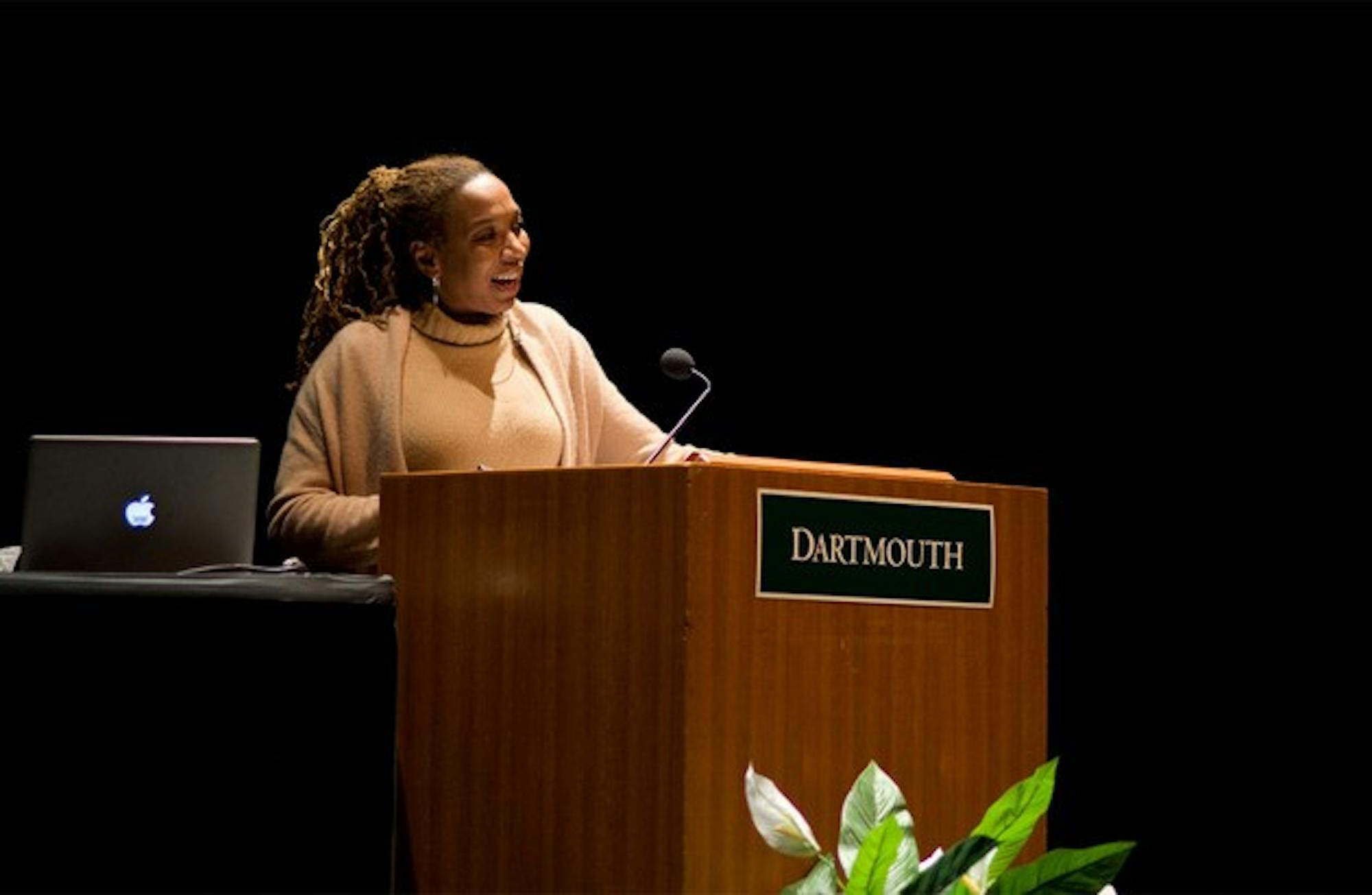During her keynote address to a packed crowd in Spaulding Auditorium, Crenshaw stressed that by ignoring the topic of racism, today's society remains post-racial rather than non-racial.
"[Post-racism] isn't a place, time or accomplishment," Crenshaw said. "It's an excuse to silence those who think about racial problems. We cannot ignore race to solve the problem of racism. We must address it."
Crenshaw stressed the importance of understanding society's progression in its treatment of racism and questioning whether we have arrived in the "Promised Land" that King mentioned.
"Schools are still segregated but nobody can use race to classify students," Crenshaw said. "Today's solution to observing racism in numbers is to stop collecting data. Electing [President Barack] Obama seems to have proven that we don't have to talk about racism anymore, but it took a campaign of talking about race to win the election."
"Schools today are not segregated but they are not integrated,'" Crenshaw said, impersonating Martin Luther King Jr.
Obama's election campaign was a product of post-racial thinking, Crenshaw said. During Obama's inaugural address, Obama never named King, Crenshaw said.
A speech delivered by Jessica Guthrie '10, the Afro-American Society president, was met with a standing ovation at the event.
"For those of us who want to take action, stand up now," Guthrie said, calling on a number of groups on campus to take a stand against today's social problems.
In his opening remarks, College President Jim Yong Kim equated the need for an international earthquake relief effort in Haiti with the need for action to solve "the racial problems of today."
"Martin Luther King Jr. began to equate racial injustice to problems of global proportions," Kim said. "Solving today's problems requires men and women who are prepared to search for these problems. We must be maladjusted to the status quo. We must never forget the fierce urgency of now.'"
Crenshaw structured her presentation as a dream in which King came back to life to exchange a humorous yet pointed dialogue with Larry King's son, Barry King. Crenshaw used the two characters to highlight the disparities between Martin Luther King Jr.'s vision of the future and today's post-racial society.
Crenshaw focused on Martin Luther King Jr.'s view that people cannot let time solve the problems of today and said that inequality stems from institutionalized racism.
"Pundits said that it was a good move for Obama to dissociate from King or else it would seem like Obama was race mongering,'" Crenshaw said, impersonating Barry King.
Crenshaw said that this view was post-racial and problematic because it ignored the topic of race.
Crenshaw's character of Martin Luther King, Jr. exited the interview with a message that roused the audience into another ovation.
"They used to say Don't rock the boat,' and now they say, You can't rock the boat because there is no boat we have arrived,'" Crenshaw said as Martin Luther King. "We have not arrived. This is a fantasy that must be broken."




